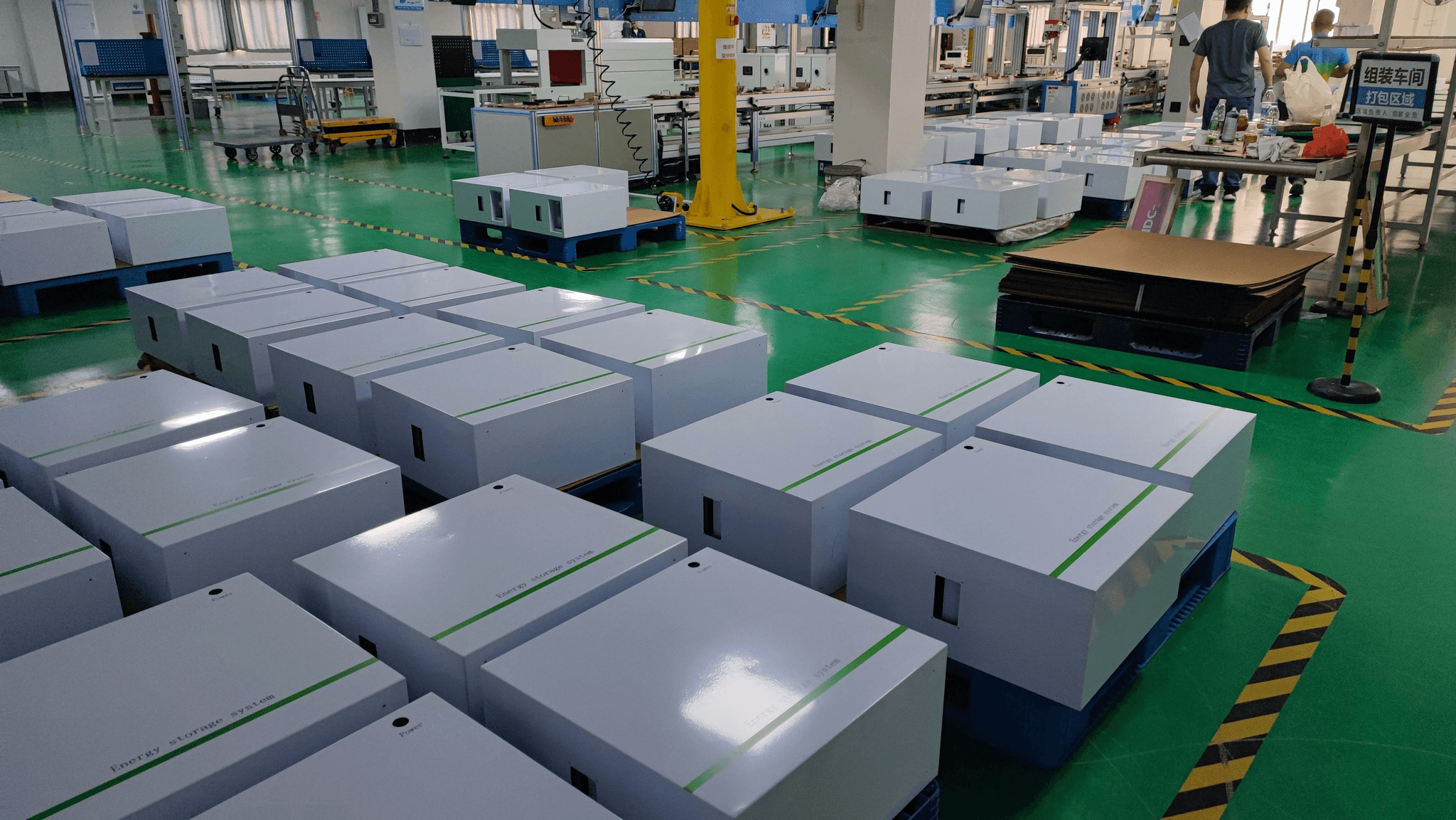Introduction
Navigating the world of international trade can feel like walking through a minefield, especially when dealing with a Chinese manufacturer. As a buyer, understanding your rights is crucial in ensuring you get what you pay for and avoid the pitfalls that often arise in these transactions. Whether it's quality problems, delays in production, or unexpected price increases, being informed empowers you to tackle issues head-on.
Understanding Your Rights as a Buyer
When engaging with a Chinese manufacturer, it's essential to know that you have rights just like any other buyer around the globe. These rights encompass receiving products that meet agreed-upon specifications and timelines. If things go awry—such as facing quality problems or encountering unexpected price increases—understanding your rights allows you to address these concerns effectively.
Common Issues with Chinese Manufacturers
Quality problems are perhaps the most notorious issue buyers face when dealing with manufacturers in China. Many buyers report receiving goods that do not match their expectations or specifications, leading to frustration and financial loss. Additionally, delays in production can wreak havoc on your supply chain, while unexpected price increases can strain budgets and disrupt planning.
The Importance of Effective Communication
Effective communication is the backbone of any successful transaction with a Chinese manufacturer; without it, misunderstandings are bound to occur. Clear dialogue helps prevent issues from escalating into more significant disputes over quality problems or unexpected price increases. By establishing open lines of communication from the start, you set the stage for smoother operations and better relationships moving forward.
Identifying the Problem

When working with a Chinese manufacturer, it's crucial to identify any issues that arise during the production process. Understanding these problems early can save you time, money, and a lot of headaches down the line. Whether it's quality problems, delays in production, or unexpected price increases, addressing these concerns promptly can lead to a smoother transaction.
Quality Problems with Your Order
Quality problems with your order can be particularly frustrating when dealing with a Chinese manufacturer. You might receive products that don't meet your specifications or have defects that render them unusable. It's important to establish clear quality standards upfront and conduct thorough inspections upon receipt to catch any issues before they escalate.
Many buyers find themselves in situations where the delivered goods are subpar compared to what was promised. This discrepancy often leads to disputes over refunds or replacements, which can strain your relationship with the supplier. To avoid such conflicts, maintain open lines of communication about quality expectations throughout the manufacturing process.
In cases where quality problems arise, documenting everything becomes essential. Take photographs of defective items and keep records of all correspondence regarding quality issues. This evidence will be invaluable if you need to escalate your complaints later on.
Delays in Production and Their Impact
Delays in production are another common issue faced by buyers working with Chinese manufacturers. These delays can significantly impact your business operations, especially if you rely on timely delivery for sales or project deadlines. Understanding the reasons behind these delays—be it material shortages or labor issues—can help you manage expectations and plan accordingly.
When production timelines slip, it’s not just about receiving goods late; it also affects inventory levels and customer satisfaction. If customers are waiting longer than expected for products, it could harm your reputation and lead to lost sales opportunities. Being proactive in communicating with your manufacturer about potential delays can help mitigate some of these negative impacts.
To tackle this issue effectively, consider setting up regular check-ins during the production phase to monitor progress closely. This way, if any delays do occur, you'll be among the first to know and can adjust your plans accordingly rather than being caught off guard at shipment time.
Unexpected Price Increases that Surprise You
Unexpected price increases from a Chinese manufacturer can throw a wrench into even the best-laid plans for budgeting and forecasting costs. These sudden hikes may stem from fluctuating raw material prices or changes in labor costs but often come as an unwelcome surprise when you're already committed to an order. It's essential to clarify pricing structures upfront and discuss potential factors that could lead to price adjustments during negotiations.
When faced with unexpected price increases after placing an order, many buyers feel cornered into accepting new terms without recourse—this is where clear communication becomes vital again! If you’ve kept records of previous agreements regarding pricing, you'll be better equipped to negotiate or contest sudden changes effectively.
Lastly, always include clauses in contracts that address how price changes will be handled should they arise unexpectedly during production runs; this foresight can save you from future financial headaches down the line!
Documenting Your Complaints

When dealing with a Chinese manufacturer, documenting your complaints is crucial for a successful resolution. Keeping accurate records not only helps you track issues but also provides you with the necessary evidence to support your case. Whether it's quality problems, delays in production, or unexpected price increases, having everything documented can make all the difference.
Keeping Accurate Records of Transactions
To effectively manage disputes with a Chinese manufacturer, start by maintaining meticulous records of all transactions. This includes invoices, emails, and any agreements made during the negotiation process. When quality problems arise or delays in production occur, these documents serve as critical evidence that can substantiate your claims and facilitate smoother communication.
Additionally, tracking payment receipts and shipment details can help clarify any misunderstandings regarding pricing or delivery timelines. If unexpected price increases catch you off guard, having a record of previous agreements will strengthen your position when addressing these surprises with your supplier. Remember, clear documentation is your best ally in navigating the complexities of international trade.
Collecting Evidence of Quality Issues
Quality problems are often at the forefront of disputes with manufacturers. To address these effectively, it’s essential to collect tangible evidence that highlights any defects or discrepancies in your order from a Chinese manufacturer. This may include photographs of faulty products, samples demonstrating quality issues, and detailed descriptions outlining how the products differ from what was agreed upon.
In addition to visual evidence, consider compiling feedback from customers who have received subpar items; their experiences can bolster your claim significantly. By presenting well-documented proof of quality problems along with records of prior communications about these issues, you create a compelling case that cannot be easily dismissed by suppliers.
Importance of Clear Communication
Clear communication is vital when addressing complaints with a Chinese manufacturer about quality problems or other issues like delays in production and unexpected price increases. Articulating your concerns precisely helps avoid misunderstandings and ensures that both parties are on the same page regarding expectations and resolutions. Use straightforward language and be specific about what went wrong—whether it’s product defects or late deliveries—to facilitate an effective dialogue.
Moreover, reiterate key points from previous communications to reinforce consistency in messaging; this approach demonstrates professionalism while keeping everyone accountable for their responsibilities during transactions. Ultimately, clear communication not only aids in resolving current complaints but also sets the stage for more fruitful interactions in future dealings.
Approaching the Supplier

When it comes to addressing issues with a Chinese manufacturer, the way you approach them can make all the difference. Whether you're dealing with quality problems, delays in production, or unexpected price increases, a thoughtful and strategic approach is key. Let’s explore how to effectively communicate your concerns while maintaining a professional demeanor.
Crafting a Professional Complaint Email
Your first step in resolving any issue with a Chinese manufacturer should be sending a well-crafted complaint email. Start by clearly stating the nature of your complaint—be it quality problems or unexpected price increases—and provide specific details such as order numbers and dates. Remember to maintain a professional tone throughout; after all, you want to foster cooperation rather than conflict.
In your email, outline any previous communications you've had regarding these issues and attach relevant documentation that supports your claims. This could include photos of defective products or records of delays in production that have impacted your business. A concise yet thorough email not only helps convey your seriousness but also sets the stage for an effective resolution.
Suggestions for Phone Conversations
If an email doesn’t yield results or if you prefer direct communication, consider picking up the phone for a conversation with the supplier. Before calling, prepare by jotting down key points you want to address—this could include reiterating quality problems or expressing concerns over delays in production that are affecting your timelines. Having these points handy will help keep the conversation focused and efficient.
During the call, remember to introduce yourself and establish rapport before diving into sensitive topics like unexpected price increases or product defects. This approach softens the blow and makes it easier for both parties to discuss solutions collaboratively rather than defensively. Furthermore, actively listen to their responses; understanding their perspective can lead to more constructive dialogue.
Being Firm yet Polite in Disputes
Navigating disputes with suppliers requires a delicate balance between being assertive and remaining courteous—especially when dealing with quality problems or delays in production that disrupt your operations. It's essential to express your dissatisfaction clearly while avoiding accusatory language that could escalate tensions unnecessarily. Phrasing such as I noticed some discrepancies instead of You made mistakes can go a long way.
When discussing unexpected price increases, be clear about how these changes impact your business relationship and future orders without sounding confrontational. Emphasizing mutual benefits can encourage cooperation; after all, both parties want successful outcomes from their dealings together! By maintaining this balance of firmness and politeness, you're more likely to achieve favorable resolutions while preserving long-term supplier relationships.
Leveraging Third Party Assistance

When you find yourself in a bind with a Chinese manufacturer, it can be tempting to go it alone. However, leveraging third-party assistance can be a game-changer in resolving issues like quality problems, delays in production, and unexpected price increases. These resources not only provide support but also lend credibility to your claims and help facilitate smoother communication.
Getting Help from Trade Associations
Trade associations serve as invaluable resources for buyers dealing with Chinese manufacturers. They often have established guidelines and best practices for addressing common issues such as quality problems and delays in production. By reaching out to these organizations, you can gain insights into industry standards and potentially access mediation services that may resolve your disputes more efficiently.
Additionally, trade associations may offer networking opportunities with other businesses that have faced similar challenges. Sharing experiences can lead to new strategies for handling unexpected price increases or negotiating better terms with suppliers. Ultimately, the expertise of these associations can empower you as a buyer to advocate effectively for your needs.
Utilizing Mediation Services
Mediation services are another avenue worth exploring when dealing with disputes related to Chinese manufacturers. These neutral third parties specialize in facilitating discussions between buyers and suppliers, helping both sides reach an amicable resolution without escalating the matter further. Whether you're facing quality problems or delays in production, mediation provides a structured environment where concerns can be addressed openly.
One significant advantage of mediation is its cost-effectiveness compared to legal proceedings; it allows you to resolve issues quickly while maintaining professional relationships with your suppliers. Moreover, mediators often have experience navigating international trade dynamics, making them particularly adept at handling unexpected price increases that may arise during negotiations.
Involving a mediator not only demonstrates your commitment to resolving the issue but also signals that you're serious about protecting your interests.
Involving Legal Expertise from AC&E
Sometimes disputes escalate beyond what mediation can handle—this is where involving legal expertise from AC&E comes into play. Their specialized knowledge surrounding international trade law equips them to tackle complex situations involving Chinese manufacturers effectively. If you've encountered persistent quality problems or significant delays in production that jeopardize your business operations, consulting AC&E could provide the necessary leverage.
Legal experts can assist you in drafting formal complaints or even negotiating settlements directly with the supplier if needed. Furthermore, they are well-versed in understanding local laws governing international transactions and can guide you through potential legal action should it come to that—ensuring you're prepared for any unexpected price increases along the way.
Having professional legal representation not only strengthens your position but also brings peace of mind knowing you have someone advocating for your rights as a buyer.
Escalating the Issue

When you find yourself facing persistent issues with a Chinese manufacturer, it may be time to escalate the situation. Whether it's quality problems that have gone unaddressed, delays in production that threaten your deadlines, or unexpected price increases that have caught you off guard, knowing when to raise a formal complaint is crucial. A well-timed escalation can often lead to quicker resolutions and re-establish trust between you and your supplier.
When to Raise a Formal Complaint
Understanding the right moment to raise a formal complaint is key in dealing with any Chinese manufacturer. If quality problems persist despite your attempts at resolution or if delays in production are significantly impacting your business operations, it’s time to take action. Unexpected price increases should also not be ignored; if they seem unreasonable or lack justification, addressing them formally can help clarify expectations moving forward.
A formal complaint serves as an official record of your grievances and shows that you are serious about resolving the issue. Make sure to include all relevant details—dates, previous communications, and specific instances of quality problems or delays in production—to strengthen your case. Remember, clarity and professionalism go a long way; approach this step with the mindset of finding solutions rather than laying blame.
Exploring Alternative Dispute Resolution
Before jumping into more drastic measures like legal action, consider exploring alternative dispute resolution (ADR) methods available for issues with your Chinese manufacturer. ADR can provide a more amicable solution without the need for lengthy litigation processes; mediation is often effective in resolving disputes over quality problems or unexpected price increases while maintaining relationships. Engaging an impartial mediator helps both parties communicate their concerns effectively and work towards mutually beneficial solutions.
Another option within ADR is arbitration, where both parties present their cases before an arbitrator who makes binding decisions based on evidence provided. This method can be particularly useful when delays in production have led to significant financial losses and require swift resolution without court involvement. Ultimately, ADR can save time and money while preserving professional relationships—something worth considering before escalating further.
Considering Legal Action
If all else fails and you're still grappling with unresolved issues like quality problems or significant delays in production from your Chinese manufacturer, it may be time to consider legal action as a last resort. Before proceeding down this path, consult with legal experts who specialize in international trade law; they can provide valuable insights into whether pursuing litigation is viable given the specifics of your case. Keep in mind that legal action can be costly and time-consuming but may sometimes be necessary for protecting your business interests.
It's essential to document everything meticulously leading up to this point—emails detailing complaints about unexpected price increases or records showcasing ongoing quality problems will serve as crucial evidence should you decide to take legal steps against the manufacturer. Additionally, understanding local laws regarding international contracts will empower you during negotiations or court proceedings should they arise.
In conclusion, escalating issues with Chinese manufacturers requires careful consideration of timing and methods available for resolution—whether through formal complaints or alternative dispute resolutions before contemplating legal actions when absolutely necessary.
Conclusion

Navigating the complexities of working with a Chinese manufacturer can be a daunting task, especially when faced with quality problems, delays in production, or unexpected price increases. However, by implementing effective strategies and fostering strong relationships, you can turn potential disputes into opportunities for growth. In this conclusion, we will explore actionable strategies for successful resolutions, ways to build better supplier relationships, and tips for preparing for future transactions.
Strategies for Successful Resolutions
When dealing with quality problems or delays in production from your Chinese manufacturer, the first step is to remain calm and collected. Document every issue meticulously; this not only helps clarify your concerns but also strengthens your position during negotiations. Crafting a well-structured complaint that highlights specific issues like unexpected price increases can lead to more favorable outcomes and faster resolutions.
Moreover, leveraging third-party assistance can be invaluable in resolving disputes effectively. Whether it’s through trade associations or mediation services, having an impartial party involved often encourages cooperation from the supplier side. Remember that being firm yet polite in your approach fosters an environment conducive to problem-solving rather than conflict.
Lastly, don’t hesitate to escalate the issue if initial attempts fail. This could mean raising a formal complaint or considering alternative dispute resolution options before resorting to legal action. The key is to maintain professionalism throughout the process while ensuring that your rights as a buyer are upheld.
Building Better Supplier Relationships
Building strong relationships with your Chinese manufacturer is crucial for long-term success and minimizing future issues like quality problems or unexpected price increases. Open lines of communication foster trust; regularly check in on production status and share feedback about their service and product quality. This two-way street ensures that both parties feel valued and understood.
Additionally, investing time in understanding their business practices can help you anticipate potential delays in production or other challenges they may face. By demonstrating empathy towards their operational hurdles while clearly communicating your expectations, you create a partnership rather than just a transactional relationship. A solid relationship often translates into better pricing negotiations and priority treatment during busy seasons.
Finally, consider arranging regular meetings—whether virtual or face-to-face—to discuss ongoing projects and address any concerns proactively before they escalate into major issues. These interactions not only strengthen ties but also give you insight into their capabilities and limitations as a supplier.
Preparing for Future Transactions
Preparation is key when entering future transactions with any Chinese manufacturer after experiencing issues like quality problems or unexpected price increases previously encountered. Start by establishing clear terms of agreement that outline expectations regarding product quality standards and delivery timelines upfront—this sets the stage for accountability on both sides from the get-go.
Furthermore, conduct thorough research on potential suppliers before committing to partnerships; look at reviews from other buyers who have worked with them previously to gauge reliability regarding production timelines and pricing integrity. Utilizing platforms dedicated to connecting buyers with reputable manufacturers can also streamline this process significantly.
Lastly, always have contingency plans ready should any unforeseen circumstances arise during future dealings—whether it’s sourcing alternative suppliers quickly if delays in production occur or negotiating flexible payment terms ahead of time if unexpected price increases threaten profitability down the line will prepare you well for whatever comes next!
